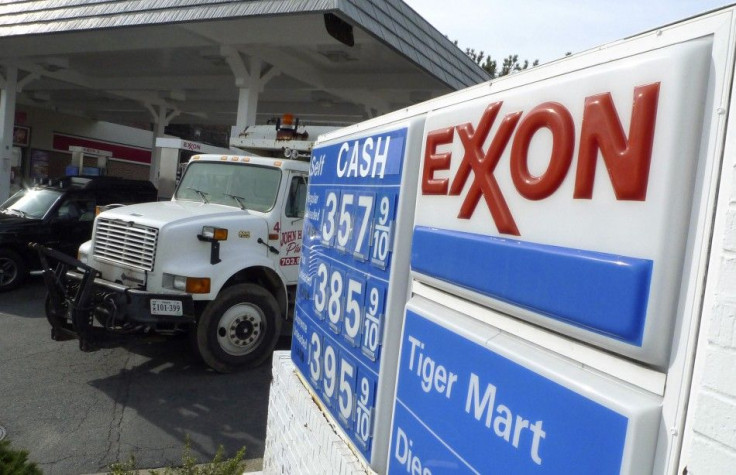ExxonMobil: Q4 Earnings Largely Due To Europe Weakness

ExxonMobil, the biggest U.S. energy company, blamed its lackluster fourth-quarter results on a combination of reasons including Europe's continuing financial crisis and lower demand, which bit into the company's refining business for the oil and gas industry and chemicals.
David Rosenthal, VP for investor relations, attributed the $930 million fall in fourth-quarter earnings to lower industry and refining and chemicals margins. Earlier Tuesday, ExxonMobil reported fourth-quarter net income inched up to $9.4 billion, or $1.97 a share, from $9.25 billion, or $1.85, a year earlier. The results narrowly beat analysts' diminshed expectations for income of $7.4 billion or $1.96 a share.
Shares of ExxonMobil fell 2 percent to $83.74, valuing the company at $401.2 billion.
In an an investor call, Rosenthal said the Irving, Texas-based oil giant's company's downstream operations sustained a $1 billion loss while chemical refining fell by $460 million because of continued low demand in the sluggish economy.
Barclays Capital analysts, in their response to the earings report, noted ExxonMobil's earnings were inflated thanks to a large asset sale during the quarter.
We think ExxonMobil's 4Q11 results will have a negative impact on the shares' near-term performance, Barclays said. U.S. and non-U.S. earnings were partially inflated by $6.9 billion in asset sales, which suggests a pretty substantial asset sales gain.
Despite that, results were much below our expectation, which is a concern to us, Barclays added.
ExxonMobil sold its Apache refinery in the North Sea last September for $1.75 billion. Rosenthal said the company expects to sell its majority share of a refinery in Japan for $3.9 billion sometime by mid-2012.
Oppenheimer's Fadel Gheit characterized ExxonMobil's earnings as a mixed bag.
While overhead and domestic oil production was lower than expected, ExxonMobil was able to make up its losses thanks to its global crude production, tied to the Brent crude index, which helped float the company above the relatively sluggish U.S. energy market, Gheit said.
As crude prices in the U.S. hovered near $100 for much of the fourth quarter, Brent crude in London consistently traded for more than $100, reaching as high as $112 in early November.
Demand for oil reached its peak between 2005 and 2007, but refinery margins have been under siege since the beginning of the recession four years ago, said Jonathan Cogan, a spokesman for the Energy Information Administration.
More recently, high fuel prices, a greater number of fuel-efficient cars, a mild winter and the growing use of alternative fuels have stunted refining activity, Cogan said.
It's been a downward trajectory, Cogan said.
Gheit, however, said ExxonMobil could absorb the economic downturn thanks to the company's size.
The surprise is they did better in refining, $100 million better in refining, than what was expected, Gheit said.
ExxonMobil's year-end report marks the fourth consecutive year the company has posted higher fourth quarter earnings.
© Copyright IBTimes 2025. All rights reserved.





















